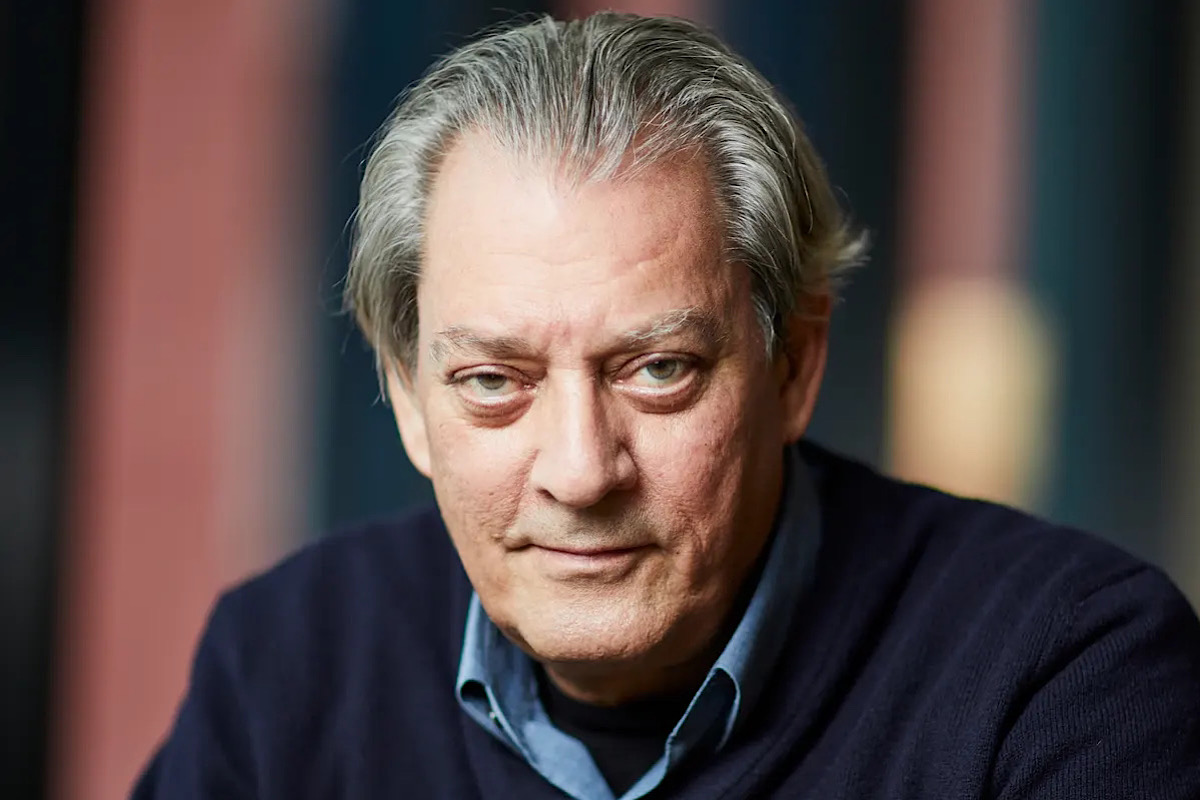The news of the death of American writer Paul Auster on 30 April at the age of 77 was sudden. Though ailing from cancer, the end is always unexpected.
Born in 1947, which makes him the same age as Salman Rushdie, Auster was Jewish. He was not a one-novel wonder. He wrote 37 novels, which, unlike several Jewish American writers, were not overtly concerned with identity in the political sense. He also wrote short stories and screenplays. Not much, however, is known about Auster’s biography of Stephen Crane in India because not much is known about Stephen Crane here, unlike other American writers such as Ernest Hemingway and F. Scott Fitzgerald. Maybe it is because Crane did not leave behind a huge body of work. A reporter-turned-author, Crane (1871–1900), died at the age of 28, and his outstanding work is A Red Badge of Courage.
Advertisement
According to Auster, “he (Crane) was a writer who transformed American literature through the written word.” Called the Burning Boy, this book on the life and times of Crane was nominated for the Booker Prize in 2021.
Auster’s body of work is very American, if one may call it so. A city like New York is almost a character, and more precisely, Brooklyn in NY, where he lived. The stories and these are about everyday people of our times. The writer disapproved of the American obsession with “closure”. He had said in an interview, “The stupidest idea I’ve ever heard of. When someone who is central to your life dies, a part of you dies as well. It’s not simple; you never get over it. You learn to live with it, I suppose. But something is ripped out of you, and I wanted to explore all that.”
He talks about this closure in relation to death in his novels. It can well extend to the death of relationships or imagination as well. Closure, healing, etc. are perhaps issues that writers anywhere do not like to confront, especially when it comes to questions of identity politics, family, or even morality. In short, readers may find solace in reading, but there are no neat endings for the author.
In this article, we discuss three of Auster’s significant works, which this reviewer has read. The New York Trilogy, Sunset Park, and 4321, the last written in 2017. 4321 is about a Jewish family—the four Fergusons—with each chapter divided into four numbered sections. Auster says his fascination with the notion of a life-changing moment came from a childhood incident that provided the starting point for 4321. At a summer camp, a boy standing next to him was killed by a lightning strike.
“It was the seminal experience of my life. At 14, everything you go through is deep. You are a work-in-progress. But being right next to a boy who was essentially murdered by the gods changed my whole view of the world. I had assumed that the little bourgeois comforts of my life in postwar suburban New Jersey had a kind of order. And then I realised that nothing had that sort of order. I’ve lived with that thought ever since. It’s chilling, but also liberating. It keeps you on your toes. And if you can learn that lesson, then certain things in the world are more bearable than they would have been otherwise. I guess the impulse to write and tell stories is different for each writer. But I think this is the essence of what I’ve been up to all these many years.”
In Sunset Park, published in 2010, Auster is at his best political incorrectness of relationship, class, and the narrator’s differences with his father, a recurring theme in Auster’s life and novels. In the New York Trilogy, the three books compiled into one later are called City of Glass, Ghosts, and The Locked Room, which are treated like a detective genre but far more complex. The conflict between the real and unreal identities overlaps, and we encounter doses of imaginative readings of Don Quixote.
Auster’s troubled relationship with his father is reflected in his novels through the characters. In Sunset Park, there is a part where a book publisher speaks with his estranged son. The painful precision of how long it has been since he’s seen his son is “more than two thousand seven hundred days ago”. Anyone who has been on either end of a serious parent-adult child rift will immediately connect.
Auster’s short stories, too, are a delight to read, and Smoke remains a favourite. Here I first learnt about the word fabulist, a fabricator who just cannot be dismissed as a liar because of his or her vivid imagination!
In 1995, Smoke was directed by Wayne Wang from a screenplay by Mr. Auster himself. The story was based on a ‘Christmas story’ by the author published in The Times. It starred, among others, Harvey Keitel and William Hurt.
There have been other novels from Auster, such as Leviathan, The Invention of Solitude, Baumgartner, The Brooklyn Follies, and many, many more.
To end with the words of Michael Dirda, who wrote in the New York Review of Books, “Over the last twenty-five years, Auster has established one of the most distinctive niches in contemporary literature,”











